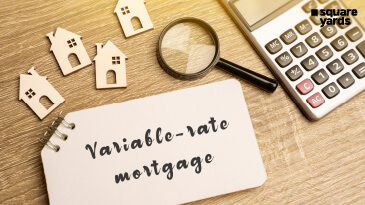A business loan in Canada can help you launch a small business you have always been thinking about. Or maybe take your existing company to new heights of expansion and profitability. However, you must persuade a bank with valid reasons and documents to provide a loan before you can access capital to run the business.
The majority of Canada’s 1.2 million firms, or 98.2%, are small businesses, which form the basis of the Canadian economy. A majority of banks and credit unions provide business loans, but smaller businesses can find that they can’t meet the strict requirements of such banks. Several online lenders and lending platforms have come up with attractive rates and easy-abiding terms to meet the increasing demand for small business loans Canada offers.
Things to Keep in Mind Before Getting a Business Loan
1. Analyse WHY You Need a Business Loan in Canada
The first step toward getting a business loan is analysing the importance of the loan and whether it will be fruitful to your growing business in the long run. There are various kinds of loans provided to businesses by various banks and lending institutions in Canada, which can be for starting a business, purchasing another company, investing in equipment, or simply for the growth of an existing business.
2. Knowing HOW MUCH You Need to Borrow For Your Business Loan in Canada
If you know what you need, it will be an easy task to determine ‘how much’ you need.
You must avoid taking on more debt than you can repay. At the same time, remember not to underestimate your financial requirements and borrow just a little because you may run out of money when you least expect it. This, in turn, may not be helpful for your business in Canada in the long run.
3. Deciding WHAT Type of Business Loan in Canada Suits You
There are various types of loans available in Canada for small businesses, but you need to know which one will work best for you and your business. Some of the types of business loans in Canada are mentioned below. You can analyse and choose the one best suited for your business requirements!
New Companies: Start-up businesses with at least 12 months of revenue can apply for ‘start-up financing’. You can use this type of business loan for the following purposes:
-
- Paying start-up fees
- Buying assets
- Creating a website for your business
- Buying a franchise
- Hiring experts or advisors
- Replenishing finances
Start-up businesses that have less than 12 months of revenue history may opt for financing from BDC partners like The Community Futures Network of Canada and Futurpreneur Canada.
Technology Companies: Tech firms can help assist your business financially if your business falls under the technology industry. Whether your business is at its early stages of development or an already established business, you can finance these aspects.
-
- Investment in customer acquisition
- Hiring workforce
- New Project Developments
- Market expansion
- Business acquirement
Small loans: Companies with already established roots looking for a small loan can seek a small business loan in Canada. The process of getting small loans can be done online and it is generally available quickly for the following purposes:
-
- Buying software, hardware, or equipment
- Upgrading your website
- Paying employees or suppliers
- Buying inventories
Commercial Real Estate: One of the small business loans in Canada is a commercial real estate loan. It helps you financially in terms of:
-
- Buying property or land
- Paying for new construction
- Expanding or renovating existing buildings
- Resplenishing finances spent on real estate
Requirements to Get a Business Loan in Canada
If you want your loan request to be accepted without any delay, then it is important to do some homework and draft a good loan request. Start by gathering all the necessary documents required to assess the loan request.
-
Documents required to apply for a business loan in Canada
The key to a successful loan request is a solid business plan, and that plan must include:
- Financial Statements: The bank asks for your financial statements to understand the financial health of the company, its profitability, and the company’s capacity to repay the borrowed loan amount. For small business loans Canada offers, the banks may accept tax returns if you cannot provide financial statements.
- Financial Projections: Banks will ask you to provide a monthly cash flow forecast for the remaining financial years and a forecast for the coming year. Sometimes the bank may even ask for a 2-year cash flow forecast. Over-optimising your figures can undermine your credibility, making it difficult to get your loan approved.
- Appropriate usage of the loan: Explain in detail how the loan amount will be used and show all the projected plans using the borrowed sum.
- Details of the company: Provide all the essential information about the company, its history, the current operation and strategies, and management and team experiences.
- Marketing and Production strategies: The bank is always interested in knowing the company’s market, its advantages when compared to the competitors, and the operational capacity of the company to manage the projected sales.
- Other supporting documents: If you want to strengthen the application for your business loan in Canada, then ensure you attach the following documents:
-
- Documents supporting financial data
- Documents of market research and studies
- Positive media coverage of the business
- Positive client testimonial
The bank asks the business to provide all the necessary documents depending on the type or size of the business loan.
| Document | Details |
| Purchase offer or sale contract for a business, piece of property, or equipment | The draught contract may be accepted by the bank. |
| Chart of ownership indicates the percentage of beneficial owners in each share | Every owner who owns more than 25% of the company’s shares or exercises control over the company is normally subject to due diligence. |
| Trust agreement if there are trusts among the beneficial owners | Typically, the last three years’ worth of trust tax filings and the trust agreement are requested. |
| Source of wealth accumulation and funds available for a down payment | Bankers might need to know how money builds up in a company and where personal finances originate. |
| Report on Environmental Assessment | During the bank’s due diligence, an assessment report may be required for projects with an environmental component. Environmental vendors approved by the bank should ideally create the report. |
| Detailed construction budget and cost estimates | For building and renovation projects, this is typically requested. |
| Equipment estimate, invoice, or budget | Depending on the equipment’s kind and acquisition schedule, requests could be made. |
| Contract for a line of credit | If you have a line of credit with a chartered bank or another lender, you can be asked for this. |
| Ageing reports for accounts payable and receivable | If they are not included in the year-end and interim financial statements, these reports displaying the length of outstanding receivables and payables may be requested. |
| A list of the fleet’s vehicles and trailers | For transportation transactions, it can be required. |
| Building plan | A request could be made for the financing of automotive inventory. |
| Report on appraisal (hotels and investment properties) | An appraisal created within the previous six months may be required for hotels and investment properties. A bank-approved appraisal company is often needed to do hotel appraisals. |
| Leases | When the loan applicant’s primary source of income is from commercial leasing, leases are frequently sought. |
Business Loans Terms and Conditions in Canada
When borrowing a business loan in Canada, remember to go through the terms and conditions and find out which one is best suited for the growth of your business. One important aspect is having the right terms and conditions, like:
Rate of Interest: The interest rate of the loan will determine the sum of money that must be paid back each month.
Period of Amortisation: The terms and conditions of a business loan are quite crucial. Longer repayment terms do result in greater long-term borrowing costs, but they also make the monthly repayments cheaper. Your cash flow may thus be less strained as a result of this.
Flexibility of the Lender: You must ask your bank what would happen if you couldn’t make your scheduled loan repayments. Would your bank, for instance, permit you to temporarily stop making principal payments? Or would they charge you a penalty? Whatever it may be, ask your bank and make it clear before borrowing a business loan.
Requirements for Collateral and Other Guarantees: Most lenders in the market base their loans on an asset. For instance, they might consider buying a building, estimate its worth, and lend you a portion of that amount.
Percentage of the Project’s Total Cost that Will be Financed: The size of the personal investment you must make will depend on this, and so will the decision of whether to partner with a second bank.
Requirements for Financial Reporting: Most loan agreements have financial reporting requirements that call for submitting annual financial statements and reports to the bank. For smaller business loans, less stringent reporting requirements are generally applicable.
Debt obligations: As part of their loan agreements, borrowers, make pledges to lenders known as covenants. The loan may theoretically be in default if a borrower violates a covenant because its conditions are not being followed. In this case, the bank can demand repayment of the full debt.
How Should You Prepare To Meet With The Bank?
-
- Choose your investment and security
The bank may want to inspect the investments and collateral you are providing, depending on the type of loan.
-
- Look up your credit report
Banks may check your credit score and the company’s credit bureau record. Reviewing your credit history beforehand may prevent sudden shocks and prepare you for inquiries.
-
- Know your financial ratios
It is quite helpful to know about your financial ratios. They represent your business’s financial health and help the bankers evaluate your business loan request. Banks often include a condition in the loan agreement that the borrower must maintain a particular ratio level.
You May Also Know
Frequently Asked Questions (FAQs)
Through a few general immigration programmes like Provincial Nominee Programmes and Executive Express Entry Business, foreign entrepreneurs, investors, and businessmen can become permanent residents of Canada.
Generally, it is not a challenging task to move to Canada as they are open to welcoming new immigrants. It is fairly easy because Canada offers various opportunities and immigration programmes for new immigrants, and it is not too difficult to qualify for any of those immigration programmes.
The purpose of the business immigration programme is to promote and ease the entry of people who wish to immigrate to Canada. The Canadian government welcomes business immigrants and provides resources to assist them in establishing a firm and settling in Canada.
You must provide the Canadian government with between $150,000 and $800,000 CAD to invest in the government. The government will grant you permanent residency after some time.
To be eligible to receive PR as a businessman in Canada, you must have the following: You must be able to communicate well in either English or French; A promise of assistance from a designated Canadian angel investor club, business incubator, or venture capital fund; Before beginning to work and earn a living, you need to have enough money to cover your expenses and make ends meet.
Foreign business owners can buy an existing company in Canada or start a new one there if they want to relocate with their immediate families. Then, under the federal Temporary Foreign Worker (TFW) programme, qualifying investors can apply for a work visa as management-level employees. Can I get PR if I open a business in Canada?
How easy is it to immigrate to Canada?
What is the business immigration programme in Canada?
How much do I need to invest in Canada to get PR?
How can a businessman get PR in Canada?
Can I immigrate to Canada if I buy a business?















